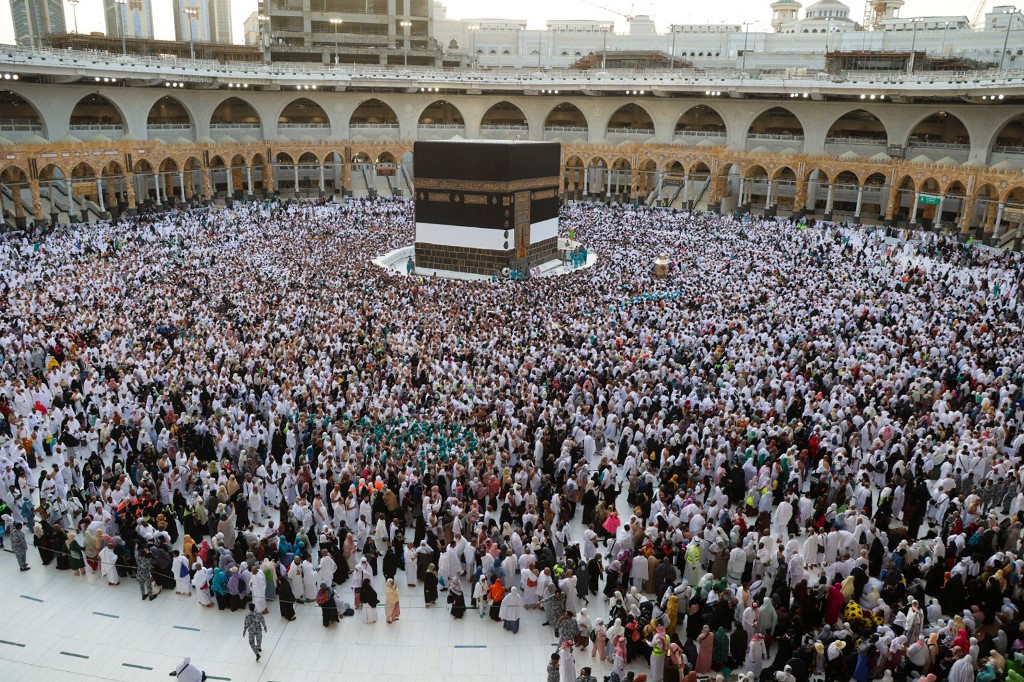Popular Reads
Top Results
Can't find what you're looking for?
View all search resultsPopular Reads
Top Results
Can't find what you're looking for?
View all search resultsHaj fund catch-22
The government is facing a catch-22 situation in managing its haj finances.
Change text size
Gift Premium Articles
to Anyone
T
he government is facing a catch-22 situation in managing haj finances. It is now asking the millions of people who have signed up for the annual pilgrimage to fork out a lot more money on top of the Rp 39 million (US$2,600) they had already paid years previous – starting with the 221,000 people who are selected to go on the pilgrimage in June.
For many, if not most of them, coming up with another Rp 30 million, which is what the government is asking for, is next to impossible. Many had saved up all their life, some sold property, for the privilege to fulfill the fifth pillar of Islam mandating Muslims to go on the pilgrimage to Mecca once in their lifetime.
The House of Representatives is studying the government’s proposal to make these pilgrims pay the extra money. The Religious Affairs Ministry said the real cost of the haj was Rp 99 million per person, including the cost of return airfares, accommodation, meals and various fees. If in the past, the government subsidized 70 percent of the cost, now the ministry says it wants to reverse the ratio, with subsidy at 30 percent, and the remaining 70 percent to be paid by the pilgrims.
The ministry argues that if the subsidy ratio remained at 70 percent, the haj permanent endowment fund (DAU), put at Rp 166 trillion at the end of December, would be rapidly depleted. The increase, Religious Affairs Minister Yaqut Cholil Qoumas told the House, was necessary in the name of the “equality” and “sustainability” of the haj operation.
The proposed increase is just too big for most people. If the House approves it, it will break the hearts of millions of people who have waited for years, some even more than a decade, to make the journey.
It is not clear when the subsidy began, but that is where the current trouble started. The government is violating the Islamic tenet which states that the pilgrimage is mandatory for Muslims if they are able, meaning both physically and financially. The government may have meant well in giving financial assistance, but in giving the subsidy, it has raised expectations that everyone would be treated the same.
Although an increase is inevitable, the House should not give a free pass to the Religious Affairs Ministry for creating this problem in the first place. It should scrutinize the management, including the finances of the haj operation. The Rp 99 million cost per pilgrim given by the ministry should not be taken at face value, especially when many government officials, including at least two previous ministers, have gone to jail for embezzling the haj permanent endowment fund.
It is not lost on some that the proposal to get would-be pilgrims to pay more came in the same week that host Saudi Arabia announced it was cutting many of the fees for the haj.
The ministry has jealously guarded its monopoly on running the haj operation against calls in the past to have it run by an independent institution. It is not only a huge undertaking to prepare the logistics of sending more than 220,000 people each year to Saudi Arabia, it is also a lucrative enterprise. That the government makes Rp 3 trillion to 5 trillion in surplus each year from the operation means there is room for efficiency. The government, and the big contractors supplying the services such as transportation, accommodation, food and other elements, all have vested interests in keeping the status quo.
We should also question why all the government-sponsored pilgrims are required to take the 40-day program when privately-run organizations can offer shorter programs like 14 days or 28 days. The actual haj runs for five days and offering the shorter programs could be a way of cutting the costs and needing less, or even no, subsidy.
In managing the haj operation, we could do with more entrepreneurship and less bureaucracy.











